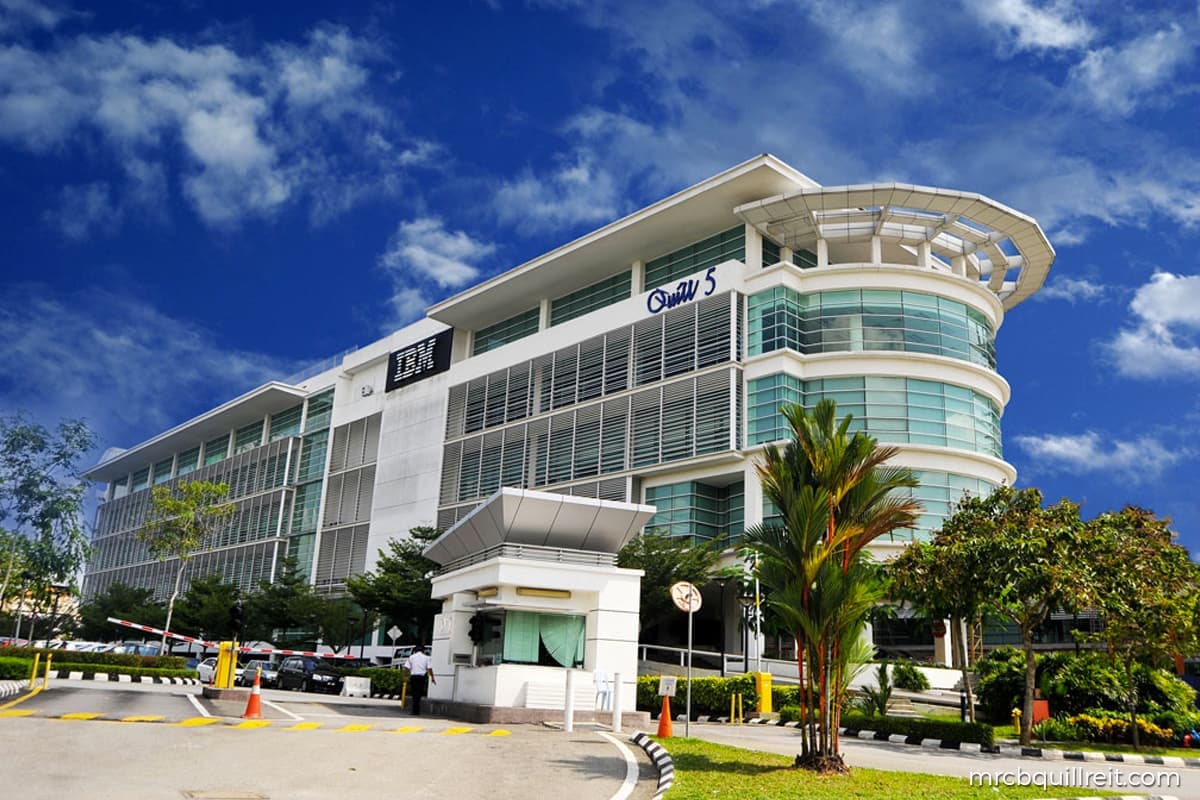
*This article has been updated to correct the DPU*
KUALA LUMPUR (Jan 19): Sentral Real Estate Investment Trust (REIT), formerly known as MRCB-Quill REIT, saw its net property income (NPI) slipped 2.4% to RM29.44 million in the fourth quarter ended Dec 31, 2020 (4QFY20), from RM30.15 million a year ago, due to lower revenue and higher unrealised rental income.
Its revenue for the quarter was down by 2.9% to RM39.46 million, compared with RM40.62 million in 4QFY19, according to a filing with Bursa Malaysia today.
The lower revenue was mainly due to “the adjustments on the unrealised revenue on unbilled lease income receivable pursuant to requirements of MFRS 16 Leases, recognised on a straight-line basis over the lease terms”.
The REIT’s unrealised rental income for the quarter stood at RM2.35 million, compared with RM1.36 million in 4QFY19.
Its distributable income stood at RM20.61 million, with distributable income per unit at 1.92 sen for the quarter, compared with RM18.61 million and 1.74 sen respectively in the prior year. The group declared a final income distribution per unit (DPU) of 3.65 sen, payable on Feb 26.
Meanwhile, the REIT reported a quarterly net profit of RM12.23 million, versus a net loss of RM24.38 million in 4QFY19.
For the full year ended Dec 31, 2020 (FY20), its NPI was 3.6% higher at RM126.12 million, from RM121.75 million in the previous year, while revenue was also up 1.9% at RM164.01 million from RM160.99 million.
Net profit was up 149% at RM72.57 million, from RM29.12 million a year ago.
On prospects, the REIT said the Klang Valley office and retail markets are expected to remain challenging, given the ongoing uncertainties arising from the pandemic.
“We will continue to focus on asset management and leasing strategies that are centred on cost optimisation and tenant retention to overcome the challenging operating environment,” said the REIT.
Sentral REIT’s unit price was unchanged at 87.5 sen at noon break, valuing it at RM937.81 million. While the stock has dropped 12.5% from RM1 a year ago, it still gained 72% from last year’s trough of 51 sen.